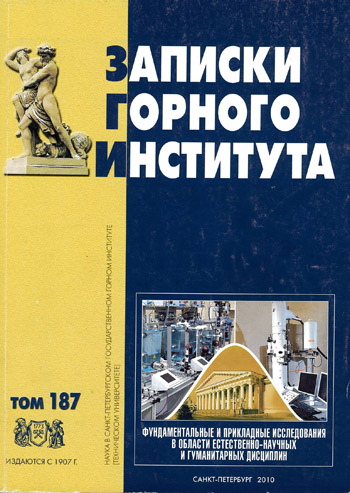At sources of the evolutionary theory of knowledge: К. Lorentz's concept
Authors:
About authors
- Ph.D., Dr.Sci. professor Saint Petersburg State Mining Institute (Technical University)
Abstract
Globalization and informatisaton of the modern society, the successes of natural and humanistic sciences determine the higher attention to the evolution of the human knowledge. In the last time the evolutionary theory of knowledge is becoming of the one of intensive developing interdisciplinary direction in the several countries. One of the founder of this theory is Austrian scientist and philosopher K.Lorenz (1903-1989).
Область исследования:
(Archived) Philosophy and history of science, culture and education
References
- Kezin A.V., Follmer G. Modern Epistemology: Naturalistic turning. Sevastopol, 2004. 392 s.
- Merkulov I.P. Epistemology. Saint Petersburg, 2003. Vol.1. 472 p.
- Popper K. Objective Knowledge. Evolutionary approach. Moscow, 2002. 381 s.
- Rebeshchenkova I.G. The Evolution of Knowledge. Saint Petersburg, 2004. 227 p.
- Follmer G. The evolutionary theory of knowledge. Moscow, 1998. 202 p.
- Lorenz K., Kreuzer F. Leben ist Lernen. Von Immanuel Kant zu Konrad Lorenz.. Ein Gespräch über das Lebenswerk des Nobelpreisträgers. München, 1981. 103 s.
- Lorenz K. Kants Lehre von Apriorischen im Lichte gegenwärtiger Biologie // Blätter für Deutsche Philosophie. 1941. № 15. (Лоренц К. Haben Tiere ein subjectives Erleben? // Jahrbuch 1963 Technischen Hochschule München / H.H.Meinke (Hrsg.). 1963. S.57-68; Lorenz K. Die Naturwissenschaft vom menschlichen Geiste // Mitteilungen d. Humboldt-Gesellschaft. 1973. № 5. S.117-127; Lorenz K. Die Rückseit des Spiegels. Versuch einer Naturgeschichte menschlichen Erkennens. München-Zürich, 1973. Lorenz K.. Die Evolution des Denkens / K. Lorenz, F.M. Wuketits (Hrsg.). München, 1983; Kultur und Evolution // Verhaltensforschung in Österreich: Konrad Lorenz 80 Jahre / O.König
- (Hrsg.). Wien/Heidelberg, 1983. S.117-118; Lorenz K. Wege zur Evolutionären Erkenntnistheorie // Evolution, Ordnung und Erkenntnis: Rupert Riedl zum 60 Geburtstag am 22 Februar 1985 / J.A.Ott, G.P.Wagner & F.M.Wuketits (Hrsg.). Berlin, 1985; Lorenz K. Evolution und Apriori // Die Evolutionäre Erkenntnistheorie: Bedingungen-LösungenKontroversen. S.13-18.
- Popper K, Lorenz K. Die Zukunft ist offen. Das Altenberger Gespräch. München-Zürich, 1985. 143 s.
Similar articles
Potassium chloride content in ore and products оf recycling automatic control system
2010 S. S. Galushkin, B. A. Vishnyak, V. N. Smirnov
